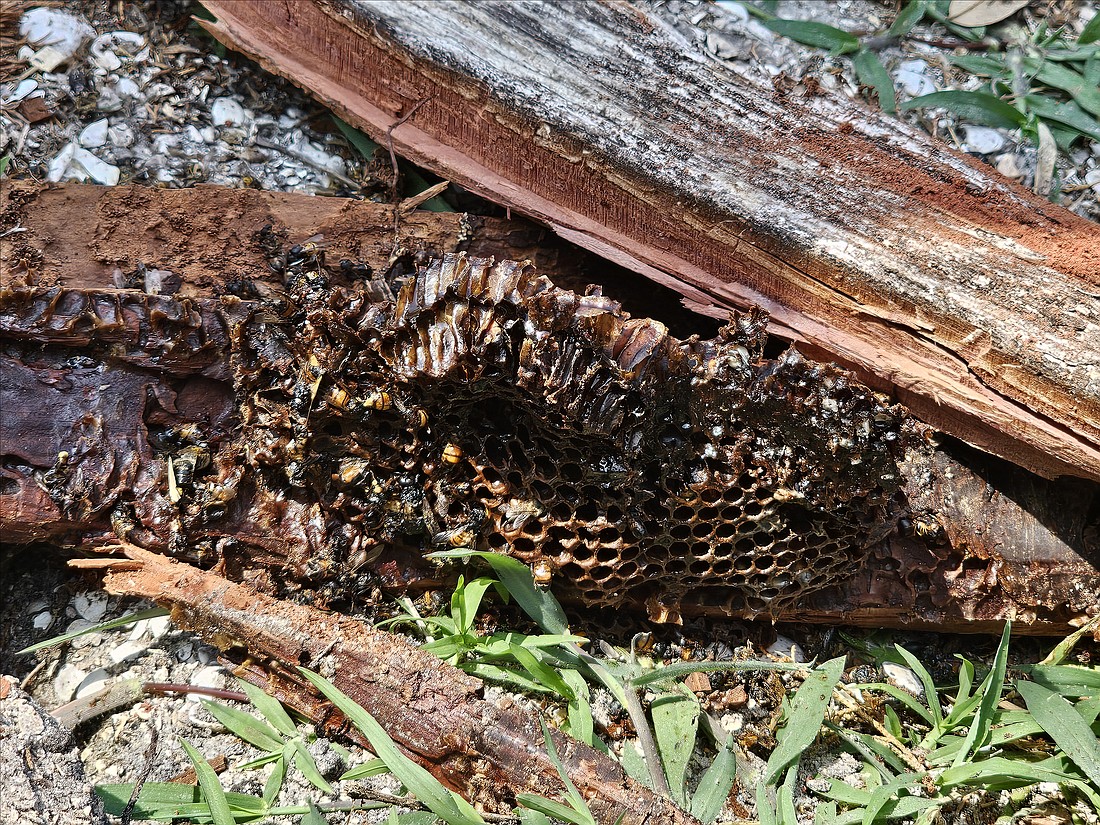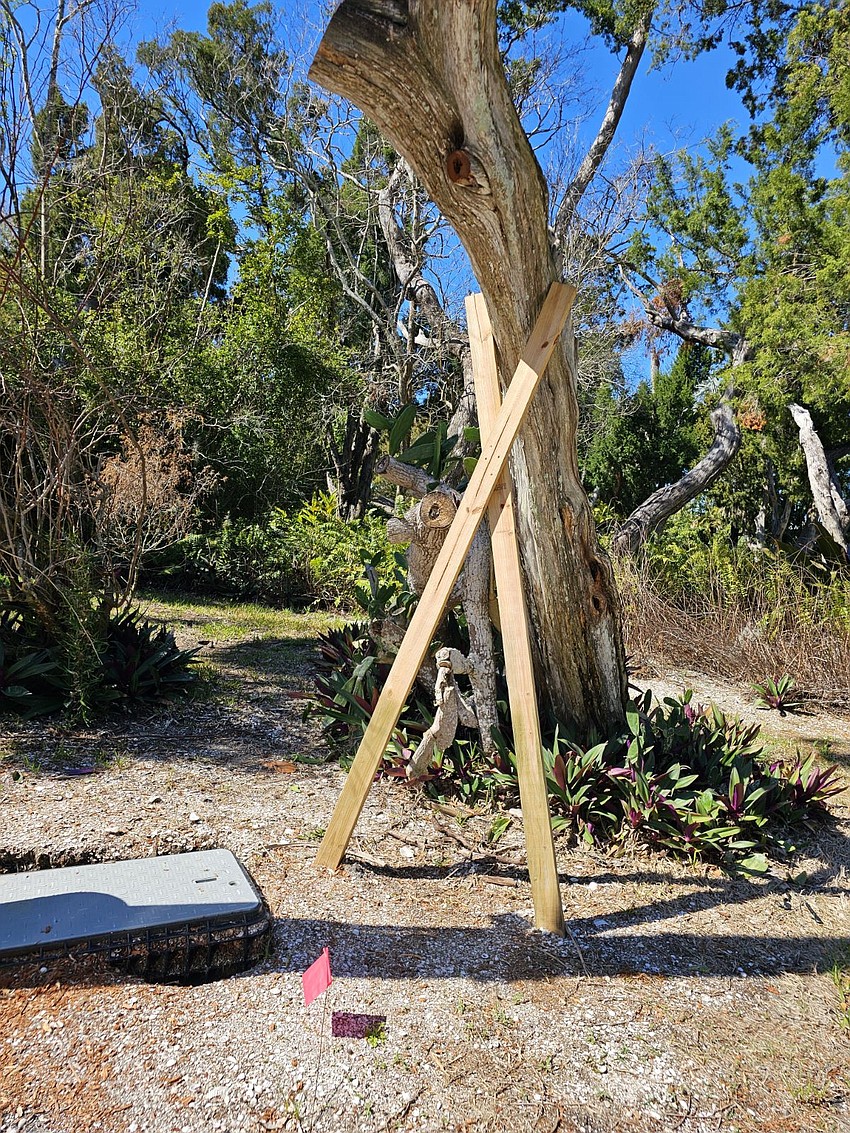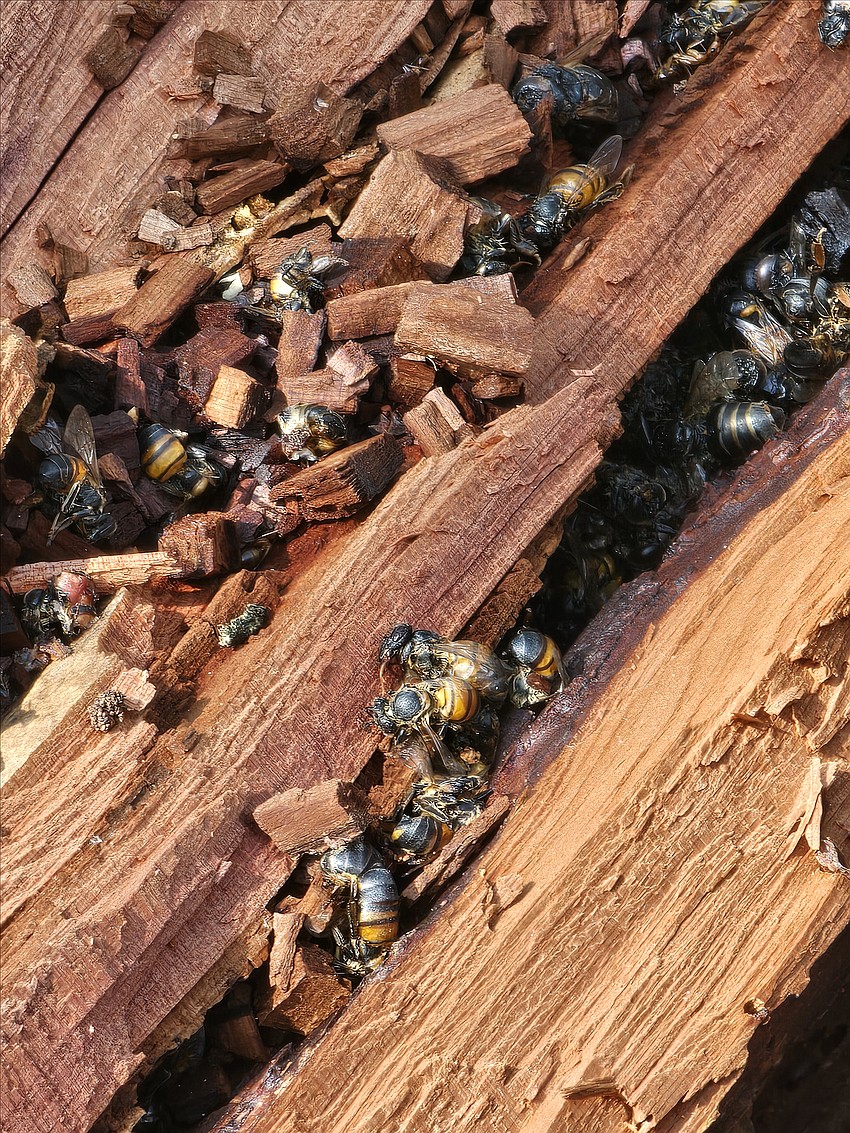- May 7, 2025
-
-
Loading

A honey bee colony meant a lot to some members of the Bayou Hammock community at the north end of Longboat Key.
But on March 27, a pest control company came to the community to remove the colony. The colony lived in an old cedar log, propped up by some two-by-fours.
Resident Tina Anderson said it was clear from the wooden boards that it was an established part of the community.
Jim and Pat Gardner, who live in the house adjacent to the former colony, said the colony was there since they moved in about 24 years ago.

The colony lived on Larry Clark’s property. On the morning of March 27, he noticed the pest control workers around the colony.
By the time Clark got out there, the workers knocked down the stump. He said they told him to go away.
Jim Gardner saw the same incident, but by the time he walked outside, the workers moved to spraying the bees with a pesticide. Jim Gardner asked the workers why this was happening, but he said no answer was given at the time.
Anderson was next to get there, by which time she said things were close to wrapped up.
“It happened so fast, we couldn’t do anything,” Anderson said.
The company — later discovered by Anderson to be A. Flynn Pest Control — was contracted by Lamberts Cable Splicing Co. to kill the colony.
According to Regional Supervisor Chad Mullet with Lamberts, one of the crew members working on-site was stung. The crew member was allergic, Mullet said.
But Mullet also said that the crew members didn’t know for sure what the insects were at the time, just that there was a threat.
The Gardners, Clark, Anderson and Edwina Nelson were among a group of concerned residents.
Above all, the group wished things were handled differently.
“It was just not done correctly,” Pat Gardner said.
Anderson said various crews worked in the area for the past three years as a part of the utilities undergrounding project, and the bees were never a problem in the past. The colony was about 6 feet away from the old utility pole where the company was working.
Further, Nelson said she frequently walked with her dogs to check on the colony. The Gardners and Clark said the bees wouldn’t bother them when they got close.
“They’re not aggressive bees,” Anderson said.
The residents also felt like Lamberts or the pest control company should have given them notice. Anderson said the residents would have been happy to find a local company to come and safely move the colony, had Lamberts given notice.
“This is private property, this is not association property,” Pat Gardner said.

According to the Florida Department of Agriculture and Consumer Services, honey bee colonies play an important part in Florida's agriculture development. But colonies can become a nuisance when bees pose a threat and sting humans or animals.
The department’s website states that honey bees can be removed or killed by a certified pest control company. It goes on to say that it is the property owner’s choice on how the colony is dealt with, but that it is not illegal for a pest control company to kill a nuisance colony.
Mullet said an easement acquired as a part of the undergrounding project gives utility companies the right to work on private property. If the bees were a threat to workers, he said it would have been within their rights to deal with the issue.
Anderson said she worked to track down people to talk to about the issue and spoke with Mullet about it.
Mullet said Lamberts would take care of cleaning up the stump where the colony lived.
The residents of Bayou Hammock advised that other neighborhoods should be cognizant of similar situations arising when utility workers are on site and to let workers know if there’s anything to be careful about.
“We don’t want this happening anywhere else,” Pat Gardner said.